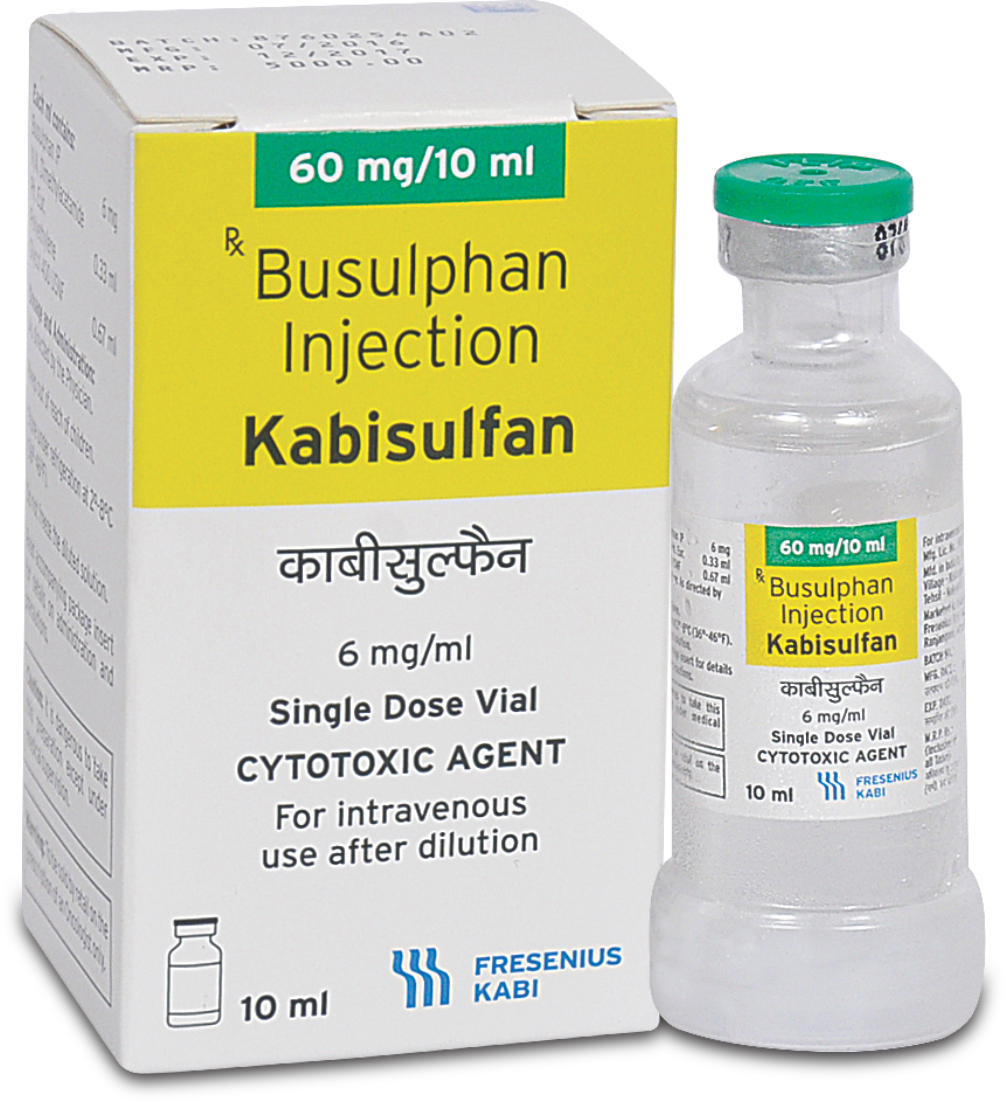- Busulfan is a bifunctional alkylating agent in which two labile methanesulfonate groups are attached to opposite ends of a four-carbon alkyl chain.
- In aqueous media, busulfan hydrolyzes to release the methanesulfonate groups. This produces reactive carbonium ions that can alkylate DNA. DNA damage is thought to be responsible for much of the cytotoxicity of busulfan.
Kabisulfan
- Features
- Indication
- Dosage
- Productinfo
BUSULFAN is an alkylating drug indicated for:
- Use in combination with cyclophosphamide as a conditioning regimen prior to allogeneic hematopoietic progenitor cell transplantation for chronic myelogenous leukemia (CML)
• Pre-medicate with anticonvulsants (e.g. benzodiazepines, phenytoin, valproic acid or levetiracetam) and antiemetic
• Dilute and administer as intravenous infusion. Do not administer as intravenous push or bolus
• Recommended adult dose: 0.8 mg per kg of ideal body weight or actual body weight, whichever is lower, administered intravenously via a central venous catheter as a two-hour infusion every six hours for four consecutive days for a total of 16 doses
- Busulphan 60 mg per 10 mL (6 mg per mL) single use vial for the use only of a Registered Medical Practitioner or a Hospital or a Laboratory
